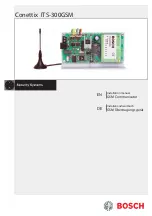
Terms and definitions
195
This is the Internet version of the user’s guide. © Print only for private use.
Protocol
In information technology, a protocol is the special set of rules
that end points in a telecommunication connection use when
they communicate. Protocols exist at several levels in a
telecommunication connection.
RS232
A standard for serial transmission between computers and
peripheral devices
SGML
A generic markup language for representing documents.
SC
Service Centre (for SMS).
Service Provider
A company that provides services and subscriptions to mobile
phone users.
SIM
A SIM (Subscriber Identity Module) card is a “smart card”,
inserted into GSM phones, that contains your telephone account
information. SIM cards can also be programmed to display
custom menus for personalized services, for instance to assist
operators in providing mobile commerce applications.
SMIL
Synchronized Multimedia Integration Language. Used by MMS
to describe how media objects are to be played.
SMS
Short Message Service. Allows messages of up to 160
characters to be sent and received via the network operator's
message centre to a mobile phone.
SMTP
Simple Mail Transfer Protocol. Protocol used to send e-mail
from an e-mail client via an SMTP server.
SWIM
A SWIM card is a SIM card containing a WIM.
SyncML
SyncML is a universal protocol for data synchronization,
developed by the SyncML Initiative Ltd.
TCP/IP
Transmission Control Protocol/Internet Protocol. TCP/IP is the
basic communication language or protocol of the Internet. It can
also be used as a communications protocol in a private network
(either an intranet or an extranet).
TLS
Transport Layer Security. Used by Web browsers, for example.














































